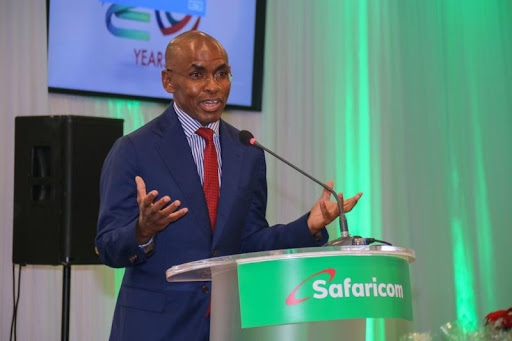Just about every 15 to 20 years or so, a political crisis occurs in Kenya, which has prominent members of the influential donor community engaging in shuttle diplomacy to try and bring the opposing sides together.
This is the kind of crisis in which it is perfectly obvious that the country is in trouble and that some kind of compromise is called for – whatever may be the sentiments of those inside the government or outside it.
Under these circumstances, there will invariably arise a narrative that the serving president is actually a pretty reasonable man, whose only desire is to see the country prosper – no matter what the opposition leaders may say about him.
And likewise, that the key opposition leader (usually the immediate former opposition presidential candidate) is also a perfectly reasonable person, who is not willing to see the country burn.
To explain why two such reasonable men cannot just sit down and agree on what is to be done, we then get a resurgence of the myth of the 'political hardliners' who are preventing any such compromises from taking place.
This standard assessment has a rich history going back to our founding president Jomo Kenyatta.
It was said of him that he would willingly have freed those who had been detained without trial in the late 1960s, mostly members of the defunct Kenya People’s Union, which had fiercely resisted the dominance of Kenyan politics by Kenyatta’s Kanu.
But the hardliners within his inner circle – the so-called 'Kiambu Mafia' – would not hear of it.
And during his successor, President Daniel Moi’s time in office, as the country descended deeper and deeper into authoritarianism, one man seemed to epitomise the 'hardliner' concept of Moi’s inner circle.
This was the much-stigmatised Nicholas Biwott, who was blamed for just about any wrongdoing of that political regime.
So, it is hardly surprising that recent newspaper headlines have frequently mentioned certain unnamed 'hardliners' as being the reason why President William Ruto and former Prime Minister Raila Odinga have not been able to join hands in preventing any continuation of the downward spiral into political chaos.
But let us take a closer look at some of the previous hardliners of Kenyan politics.
During Jomo Kenyatta’s tenure, one such powerful hardliner was believed to be Dr Njoroge Mungai, who was not only one of the most educated Kenyans of his generation but, more specifically for his hardliner role, was Jomo Kenyatta’s brother-in-law as well as the old man’s personal doctor.
He was, in brief, a true insider. He was described in the foreign media as Jomo Kenyatta’s 'heir apparent' and carried himself as such.
But that did not prevent him from losing his Dagoretti Constituency seat in the early 1970s, at the very time when he was supposedly at the peak of his powers.
This gives us an insight into the fact that Kenyans actually misuse this term 'hardliner'. When the term is used to describe the far-right anti-immigration parties in various European nations. Or when it is used to describe the far-right, ultra-orthodox Israeli political parties. What is being referred to in both cases are groups of politicians – with or without one prominent leader – who have seats in the legislature; can vote one way or another on crucial issues facing the country; and can to some degree dictate the agenda of a Prime Minister who needs their support.
If you follow European politics at all, you will sooner or later read about cases in which the serving Prime Minister would prefer to follow a more moderate course, but the hardliners in his ruling coalition are strong enough to impose on him a different – and more extreme and uncompromising – set of priorities.
Those are vastly different from our Kenyan so-called hardliners, who are totally dependent on the serving president, and whom the president can dispense with any time he chooses to.
If you can end up behind bars (as Nicholas Biwott briefly did during the Moi presidency) how then can you be a powerful hardliner?
Still, in the weeks ahead, you may expect to read more and more about the supposed hardliners who are proving to be a barrier to Ruto and Raila resolving the current political crisis.









